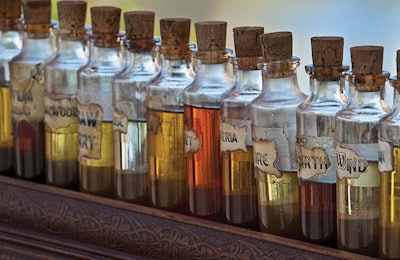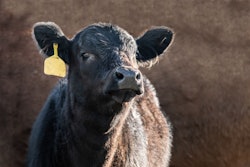
Essential oils, other herbal feed additives could play key role in defeating antibiotic resistance
Essential oils may not only have the capacity to replace growth-promoting antibiotics in animal feed, but could actually help turn the rising tide of antibiotic resistance. There’s just one problem: They’re not easy to use.
In a review to be published in June’s edition of Animal Feed Science and Technology, a group of researcher from Mexico and India conclude that essential oils and numerous other herbal extracts appear to hold promise as growth-promoting feed additives for cattle. Despite inconsistent results among the studies they reviewed, the majority indicate plant extracts have the capacity to boost bovine growth and productivity. In some cases, plant-based additives boosted milk production by as much as 15%, according to Abdel-Fattah Salem, one of the authors on the paper and a professor in the Department of Animal Nutrition at the Autonomous University of Mexico State.
Research on the use of plant extracts, especially tannins, in cattle diets has primarily focused on the potential for these ingredients to reduce enteric emissions, according to Salem, while cattle researchers have focused on the ability of probiotics to enhance feed intake and growth. But a smaller body of work suggests that plant extracts could improve cattle performance in a manner similar to the growth-promoting properties of antibiotics.
Many plant extracts act as antibiotics or antifungals that defend the plant from pathogens and would-be predators. Thus, these compounds could serve similar purposes in animal diets, Salem said.
According to the Animal Feed Science review, plant extracts hold particular promise as replacements for growth-promoting antibiotics because they may help reduce the resistance that comes with the overuse of antibiotic compounds. While the consistent use of any one compound will eventually encourage bacteria to develop resistance to that substance, the wide variety of plant extracts means producers could avoid overdependence on a single compound more easily. Additionally, many extracts appear to have synergistic effects, which would allow animal producers to rotate through multiple preferred combinations or formulas, according to the authors.
However, the authors note that the studies cited in their review demonstrate a high degree of inconsistency from one trial to the next, even when the same herbal extract is used. They indicate that the extracts appear to be highly sensitive to dose, and to the conditions in which they are used. Factors ranging from the age of the animal to slight changes in diet appear to have significant impacts on the efficacy of plant-based additives. So while plant extracts may improve the intestinal health and performance of dairy cattle, Salem said, exact diets must be formulated carefully.














